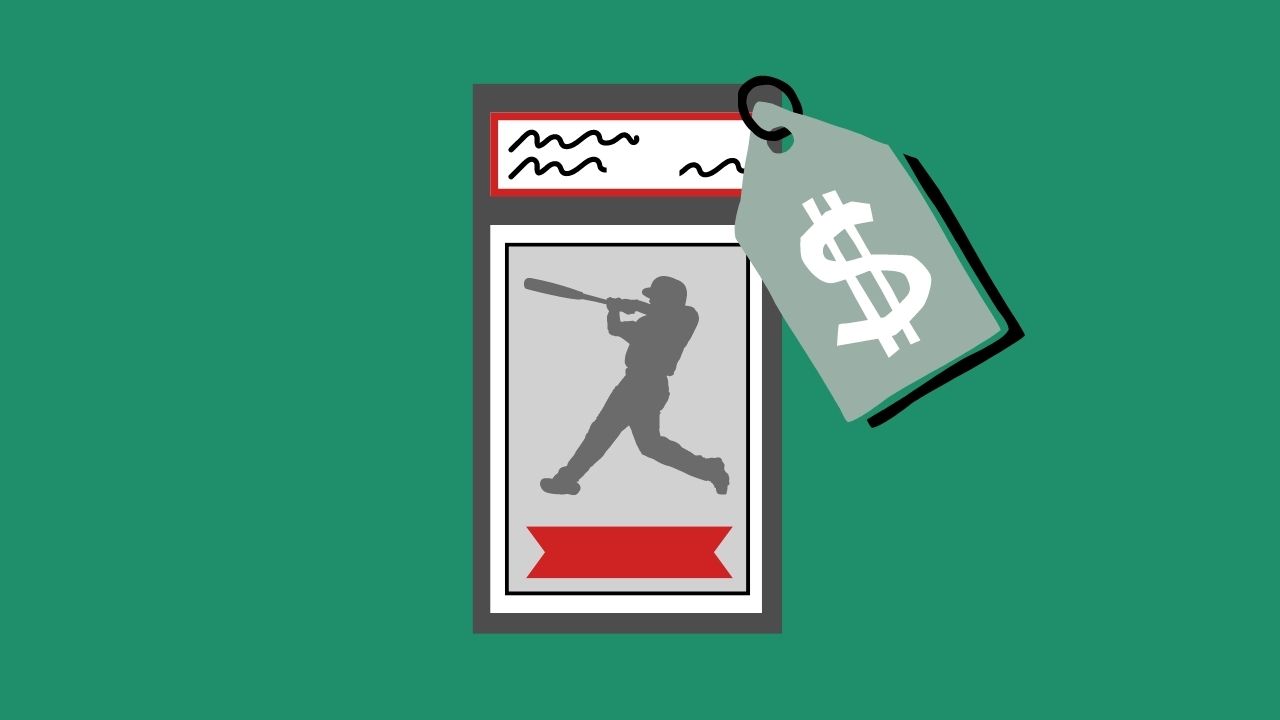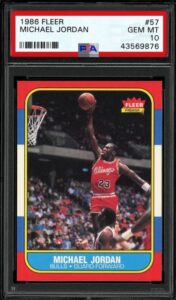
Card grading has never been necessarily cheap, but in recent times the price of grading per card has risen, for a few different reasons.
Grading sports cards is definitely still worth it in some cases, but not always; I’ve covered everything you need to know below.
You can now expect to pay at least $15-$30 per card with the top card grading companies, like PSA, BGS and SGC; They’re only the ‘value’ options, with long turnaround times.
You’ll have to pay far more for higher value cards. PSA, for example, changes their prices depending on the value of the card being graded, so for a card worth $1,000+, you’ll pay at least $100 per card to grade, and for a card worth $2,500+, it’s at least $300 per card to grade, and so on.
In this article, I’ve taken a look at why card grading has become so expensive, and whether it’s still worth grading collectable cards.
Table of Contents
Why Is Card Grading Getting More Expensive?
High Demand For Card Grading
A big part of the reason that the cost of grading cards has gone up so much, is down to the high demand for it.
As I mentioned earlier, the collectable card boom around 2020 brought a wave of new people to the hobby, and the hype and submission numbers became overwhelming for companies like PSA and BGS, and they had to temporarily suspend their grading services.
Grading companies couldn’t scale their resources at the same pace that submission numbers were increasing.
The most popular grading services have been around a long while, and have established themselves within the hobby, so collectors trust their grading, and their slabs/labels are easily recognizable; That’s why they get so many submissions.
The sharp spike in the amount of people wanting cards graded, has led to prices going up; Partly to deter collectors submitting low value, or common cards, and move towards grading more high value and rarer cards.
PSA, BGS and other popular grading services have increased their prices because… Well because they can.
It’s like anything else, if demand for it goes up, so does the value. The higher prices also mean lower and more manageable submission numbers, but higher value, which is better for the grading services.
Card Grading Usually Adds Value
A raw card isn’t worth as much as a card that’s been graded highly by PSA, BGS and SGC, for example.
A card’s grading is like the hobby’s seal of approval.
As I said earlier, the reputable and most popular grading companies have established trust in the card collecting hobby, and collectors know their grades give a good and accurate indication of the card’s condition.
The higher the condition and grade of a card, the more valuable it is, and raw cards haven’t got the 3rd party assessment from a professional grader on its condition, so that uncertainty lowers the value it has on the secondary market.
So, we’ve established that grading cards can increase the resale value of a card, and by a lot, in many cases.
The difference between the value of a raw card, and the value of that same card in a PSA 9 or 10, can be tens, or even hundreds of thousands of dollars, when talking about some of the most sought-after collectable cards out there.
If the grading is adding that much potential resale value, it’s only natural the grading companies want to take their slice of ‘commission’ for it; That’s why card grading can get really expensive.
The grading services are businesses, who want to maximize their profits – The top grading companies have the luxury of their big reputations and trust, so they know they can charge more for their services.
Protection For The Card
I won’t spend too long talking about this point, but it’s also worth noting that once a card is graded and slabbed, the plastic casing protects the card from damage and preserves its condition.
So, that’s an additional bit of value that grading a card gives.

Is It Still Worth Getting Cards Graded?
Card grading doesn’t always increase the resale value of a card, so if that’s the main reason for having a card graded, then you have to be prepared for that.
If the card achieves a low grade, then it often won’t be worth spending the fees on shipping and grading, especially when you also consider the long turnaround times.
When it comes to grading cards for increased value, it’s worth evaluating the condition yourself and considering what grade it would likely achieve – If it’s unlikely to achieve a high grade, then it isn’t worth spending potentially hundreds of dollars per card to have it graded, if the resale value is your main concern.
Often, raw cards can be worth more than cards with the lowest grades. If you’re not experienced, and you’re not sure what grade a card is likely to achieve, then there are cheap pre-grading services, which give you a rough indication of the grade a card is likely to be given.
If you’re confident a card is in good condition, then use a tool like Market Movers to understand the potential values of individual cards, and then you can work out if it’s worth the investment to grade the card.
If you’re grading a card that means a lot to you, or you like the artwork and want to preserve it, and the value it potentially has doesn’t matter to you, then absolutely go ahead and have it graded, if you’re happy paying the fees necessary – in that case, it’s worth noting there are some cheaper alternatives than the likes of PSA and BGS.
Will PSA And Beckett Ever Lower Their Prices?
Grading companies are always tweaking prices, depending on multiple factors, like demand and competition.
PSA and BGS, along with the other top grading companies, do decrease prices from time to time, while they also increase them sometimes.
Ultimately, I don’t think we’ll ever see a huge reduction on usual price levels.

